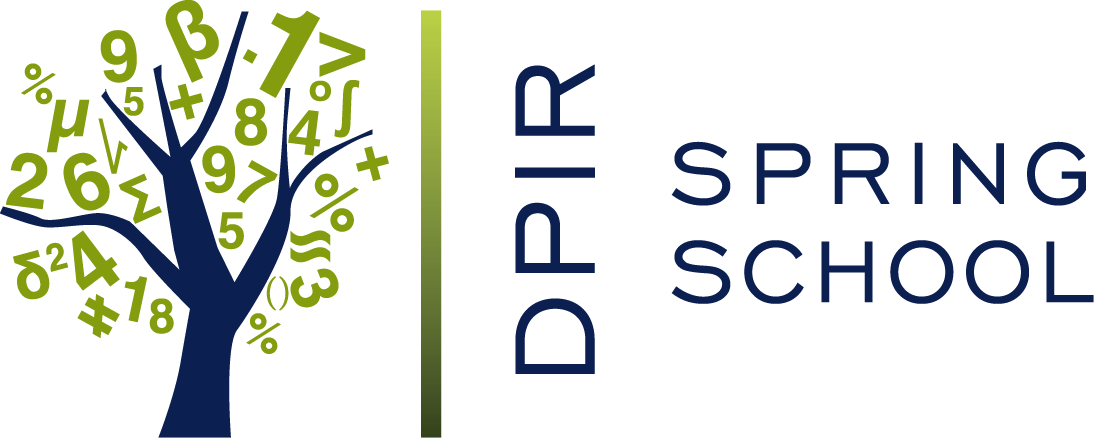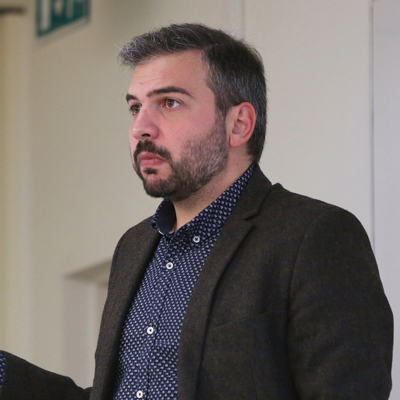Data Analysis for the Social Sciences
Data Analysis for the Social Sciences
Spyros Kosmidis (Oxford)
@KosmidisSpyros
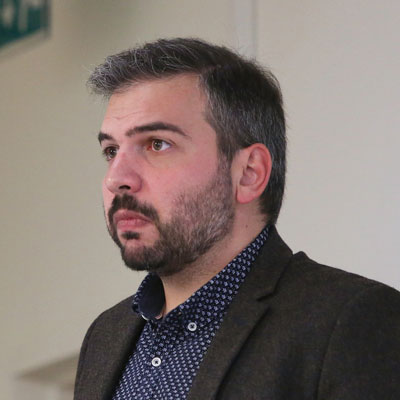 Spyros Kosmidis is an Associate Professor in DPIR and Director of the Oxford Spring School in Advanced Methods. Kosmidis's research focuses on social attitudes, voting, political economy and political communication.
Spyros Kosmidis is an Associate Professor in DPIR and Director of the Oxford Spring School in Advanced Methods. Kosmidis's research focuses on social attitudes, voting, political economy and political communication.
Qualitative Methods: (Interviews & Fieldwork)
Qualitative Methods: (Interviews & Fieldwork)
Marnie Howlett (Oxford)
@marnie_howlett
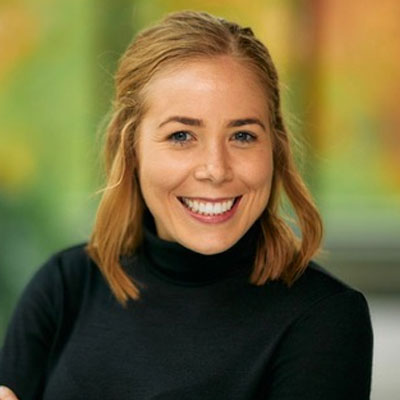 Dr Howlett’s research lies at the nexus of geopolitics, cartography, borders, and nationalism within the former Soviet Union, particularly Ukraine. She has conducted extensive fieldwork in the country analysing the role of borders in shaping grassroots dynamics. Since the beginning of the Russia-Ukraine war, she has been working on several projects related to Ukrainian nation-building, including running two public opinion surveys in the country. Her main research interests also include the use of visual, spatial, and digital methods for qualitative political science research. She is a Departmental Lecturer in Russian and East European Politics at the University of Oxford. Marnie holds a PhD in International Relations from the London School of Economics and Political Science (LSE), a MA in Political Science, and a BA (High Honours) in International Studies from the University of Saskatchewan.
Dr Howlett’s research lies at the nexus of geopolitics, cartography, borders, and nationalism within the former Soviet Union, particularly Ukraine. She has conducted extensive fieldwork in the country analysing the role of borders in shaping grassroots dynamics. Since the beginning of the Russia-Ukraine war, she has been working on several projects related to Ukrainian nation-building, including running two public opinion surveys in the country. Her main research interests also include the use of visual, spatial, and digital methods for qualitative political science research. She is a Departmental Lecturer in Russian and East European Politics at the University of Oxford. Marnie holds a PhD in International Relations from the London School of Economics and Political Science (LSE), a MA in Political Science, and a BA (High Honours) in International Studies from the University of Saskatchewan.
Advanced Qualitative Methods: (Process Tracing)
Advanced Qualitative Methods: (Process Tracing)
Jody LaPorte (Oxford)
@jodylaporte1
 Jody LaPorte completed her undergraduate degree at Yale University, and her MA and PhD in Political Science at the University of California, Berkeley. She arrived in Oxford in 2013 to take up an early career post at the Department of Politics and International Relations and St Hilda’s College, followed by two years as a lecturer at the Blavatnik School of Government. She has been at Lincoln College since 2017, where she is the Gonticas Fellow in Politics & International Relations and Director of Studies for PPE. Her research interests fall at the intersection of comparative politics and international relations. Much of her work focuses on the politics of non-democratic regimes, with central attention to the countries of post-Soviet Eurasia. She is interested in how domestic and foreign pressures—including patterns of corruption, the legacies of communism, and contemporary human rights norms—shape political outcomes. In addition to these substantive issues, she is also active in the field of political science research methods, where her recent publications seek to develop new tools for using qualitative data to make causal claims.
Jody LaPorte completed her undergraduate degree at Yale University, and her MA and PhD in Political Science at the University of California, Berkeley. She arrived in Oxford in 2013 to take up an early career post at the Department of Politics and International Relations and St Hilda’s College, followed by two years as a lecturer at the Blavatnik School of Government. She has been at Lincoln College since 2017, where she is the Gonticas Fellow in Politics & International Relations and Director of Studies for PPE. Her research interests fall at the intersection of comparative politics and international relations. Much of her work focuses on the politics of non-democratic regimes, with central attention to the countries of post-Soviet Eurasia. She is interested in how domestic and foreign pressures—including patterns of corruption, the legacies of communism, and contemporary human rights norms—shape political outcomes. In addition to these substantive issues, she is also active in the field of political science research methods, where her recent publications seek to develop new tools for using qualitative data to make causal claims.
Machine Learning
Machine Learning
Tom Robinson (LSE)
 Tom Robinson is an Assistant Professor in the Department of Methodology at the LSE. He is also affiliated with the Centre for Experimental Social Science (CESS) at Nuffield College, University of Oxford. His research interests surround representation, direct democracy and campaign finance, as well as issues within experimental methodology and computational social science.
Tom Robinson is an Assistant Professor in the Department of Methodology at the LSE. He is also affiliated with the Centre for Experimental Social Science (CESS) at Nuffield College, University of Oxford. His research interests surround representation, direct democracy and campaign finance, as well as issues within experimental methodology and computational social science.
New for 2025!: Time Series Analysis
New for 2025!: Time Series Analysis
Matt Lebo (University of Western Ontario)
 Matthew Lebo is a professor of Political Science at the University of Western Ontario and the co-Director of the Centre for Computational and Quantitative Social Science. His fields of expertise are political methodology and American and British politics. In methodology, he has published articles in the American Journal of Political Science, the Journal of Politics, the British Journal of Political Science, and Political Analysis on topics including fractional integration, cointegration and error correction methods, multivariate GARCH, multilevel time series models, and bounds methods for inference. His book with Suzie Linn (Penn State) and Clay Webb (Kansas) A Practical Guide to Time Series is forthcoming at Cambridge University Press in 2025.
Matthew Lebo is a professor of Political Science at the University of Western Ontario and the co-Director of the Centre for Computational and Quantitative Social Science. His fields of expertise are political methodology and American and British politics. In methodology, he has published articles in the American Journal of Political Science, the Journal of Politics, the British Journal of Political Science, and Political Analysis on topics including fractional integration, cointegration and error correction methods, multivariate GARCH, multilevel time series models, and bounds methods for inference. His book with Suzie Linn (Penn State) and Clay Webb (Kansas) A Practical Guide to Time Series is forthcoming at Cambridge University Press in 2025.
New for 2025!: Large Language Models
New for 2025!: Large Language Models
Maksim Zubok (Oxford)
@antndlcxr
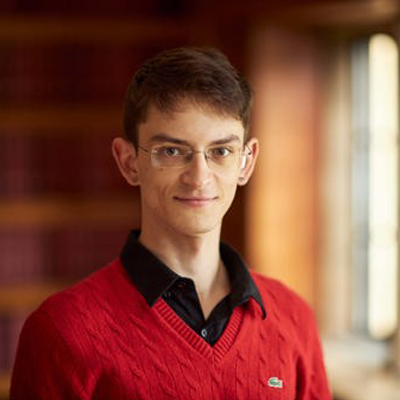 Maksim Zubok is a DPhil student specialising in political methodology. His research explores how to use language models in political science, focusing on data annotation tasks and modelling of public opinion and human behavior. He is a convener of the LLMs for Social Sciences workshop – an initiative that aims to bring social scientists and AI researchers together to keep up with rapid advancements in NLP and integrate these insights into political science via collaborative research projects.
Maksim Zubok is a DPhil student specialising in political methodology. His research explores how to use language models in political science, focusing on data annotation tasks and modelling of public opinion and human behavior. He is a convener of the LLMs for Social Sciences workshop – an initiative that aims to bring social scientists and AI researchers together to keep up with rapid advancements in NLP and integrate these insights into political science via collaborative research projects.
Causal Inference 1: (Social Science Experiments)
Causal Inference 1: (Social Science Experiments)
Noah Bacine (Oxford)
@NBacine
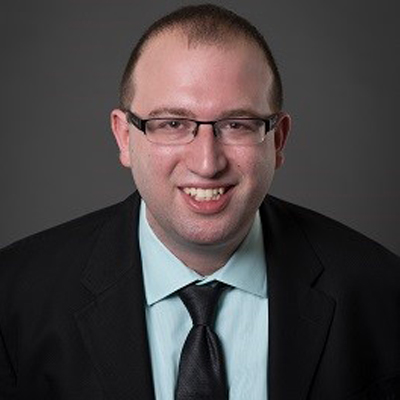 Noah Bacine is the Assistant CESS/Lab Director in June 2021. Noah specializes in experimental and behavioural economics with a focus on understanding how individuals respond to different forms of inequality/unfairness. His primary responsibilities are training aspiring experimentalists and facilitating their experiments, while his work involves experiments related to redistribution, conflict and the impact of unfairness on the rejection of democratic norms.
Noah Bacine is the Assistant CESS/Lab Director in June 2021. Noah specializes in experimental and behavioural economics with a focus on understanding how individuals respond to different forms of inequality/unfairness. His primary responsibilities are training aspiring experimentalists and facilitating their experiments, while his work involves experiments related to redistribution, conflict and the impact of unfairness on the rejection of democratic norms.
Causal Inference 2: (Design-Based Approaches)
Causal Inference 2: (Design-Based Approaches)
Nelson Ruiz (University of Essex)
@nelson_ruizg
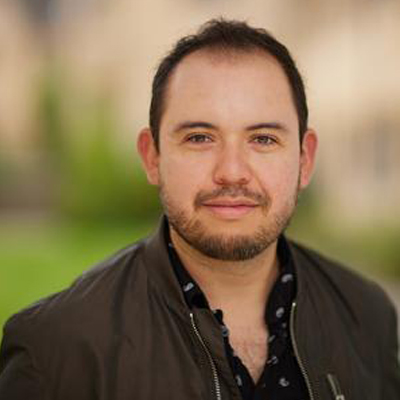 Nelson is a Senior Lecturer (Associate Professor) and Head of the Political Economy Research Division in the Government Department at the University of Essex. He is also a Senior Visiting Fellow at the LSE Government Department, an Associate Member at Nuffield College University of Oxford, an Associate Member at the Department of Politics and International Relations (DPIR), and a Research Associate at Oxford's Latin American Centre. His research interests are in the political economy of development. Within this field, the main topic he is interested in is the role of money in politics. He is also interested in studying corruption and political selection. His research involves the use of causal inference methods and some data science tools.
Nelson is a Senior Lecturer (Associate Professor) and Head of the Political Economy Research Division in the Government Department at the University of Essex. He is also a Senior Visiting Fellow at the LSE Government Department, an Associate Member at Nuffield College University of Oxford, an Associate Member at the Department of Politics and International Relations (DPIR), and a Research Associate at Oxford's Latin American Centre. His research interests are in the political economy of development. Within this field, the main topic he is interested in is the role of money in politics. He is also interested in studying corruption and political selection. His research involves the use of causal inference methods and some data science tools.
Text Analysis
Text Analysis
Michal Ovadek (UCL)
@michal_ovadek
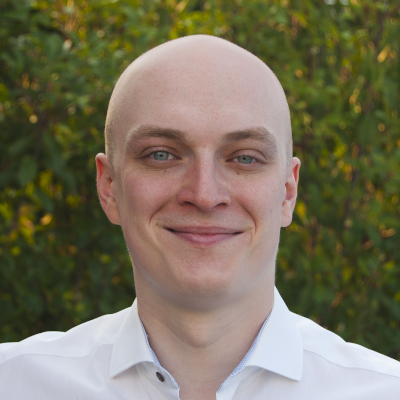 Michal Ovádek is a lecturer in European politics at the Department of Political Science, University College London. His research focuses on European integration, judicial politics and democratic backsliding in Central and Eastern Europe. He teaches primarily quantitative methods at UCL.
Michal Ovádek is a lecturer in European politics at the Department of Political Science, University College London. His research focuses on European integration, judicial politics and democratic backsliding in Central and Eastern Europe. He teaches primarily quantitative methods at UCL.



